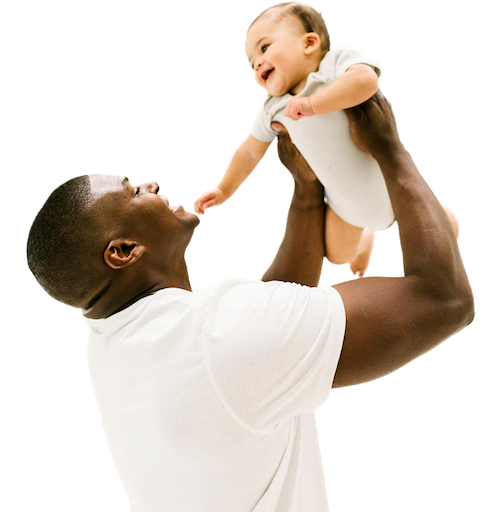I hear it so often: babies approach 18 months, and sleep suddenly becomes challenging again. Let’s talk about whether you’re seeing the 18 month sleep regression.

The 5–24 Month Collection
stars ( reviews)
If sleep is a struggle, my classes can help. My 5-24 Month Collection will teach you a customizable, step-by-step plan to help your baby sleep independently for 10-12 hours overnight and a restorative nap while remaining emotionally connected. You can get started today, even in the middle of a regression.
Learn MoreWhat is a sleep regression? anchor
When a little one’s brain is going through huge developmental changes, sleep can be impacted. This could look like your 18 month old waking up at night, your 17 month old rising early, or your 19 month old refusing naps. These sudden changes in your baby’s sleep could be a sleep regression. Here is what I want you to know: Sleep regressions are a sign of developmental progressions. Your baby’s brain is working hard! Keep in mind, every child develops at their own pace, which means you may see this regression anytime between 16-20 months.
Are sleep regressions based in science?anchor
When a baby’s brain is busy learning new things or developing, sleep can take a back seat.(5, 8) Also, as babies grow, their sleep needs change.(2,6,7) This means a baby may begin to struggle with more night wakings, with nap refusals, and with falling asleep. When sleep is interrupted this way, it can feel like everything is moving backwards, hence the term “sleep regression.”
However, sleep isn’t actually going backwards or permanently “regressing.” Sleep skills don’t just disappear at magical ages. When I talk about common sleep regression ages, I’m talking about ages when babies and toddlers often experience periods of development (physical, cognitive, social) or commonly have a change in sleep needs (Think fewer naps, more awake time, etc..). But truly, all babies develop at their own pace, meaning sleep could be interrupted because of new skills, cognitive progressions, or physical shifts at any age.
What causes the 18 month sleep regression? anchor
Your 18 month old may experience a sleep regression due to major physical, cognitive, and emotional strides that occur around 18 months.
You may have noticed that your little one’s desire for independence is increasing. They’re developing greater awareness of their ability to make decisions, and they’re gaining a new understanding of cause and effect. They are learning that their thoughts and actions influence others. They may begin to think: "Wait, I can choose what I do... Maybe I don't want to sleep."
At the same time, your child may be starting to run or climb, follow one-step commands, imitate household tasks, and name familiar objects. Even if your toddler hasn’t experienced any of these things yet, it’s likely that they will in the next few months.
The disruption in sleep caused by this explosion of new learning and new skills is referred to as the 18 month sleep regression.
Check out this video on the 18 month sleep regression: (Be sure to watch for Beckett's new skill!)
Is there an increase in separation anxiety at 18 months? anchor
Yes! Many babies experience a peak of separation anxiety around 18 months.
Why? Well, as they grow in their desire for independence, little ones still crave the security of knowing you’re close by. They want the reassurance that they’re still safe.
Why is my 18 month old waking up at night? Is this a sign of the 18 month regression?anchor
It could be! Here are a few reasons that your 18 month old may be waking up at night:
Your little one is sick or cutting teeth. Whenever a child has a sudden change in their sleep, we want to be sure to rule out any physical concerns like sickness or teething.
Their daily routine needs to be adjusted. Let’s take a look at their wake windows and behavior to see if perhaps they’re overtired or not tired enough.
It’s time to drop a nap. If your baby is around 18 months and is still taking two naps, they are likely ready to transition to one nap.
Your little one is in the thick of the 18 month regression. Don’t worry! You can help your little one to get through this sleep struggle with these tips.
What are some signs of the 18 month sleep regression? anchor
Here are some signs you may notice if your baby is going through the 18 month sleep regression:
Your 17 month old won’t nap, either taking shorter naps or completely refusing them.
Your 18 month old is experiencing separation anxiety at bedtime or nap time and screams when you begin to leave the room.
Your 19 month old is waking up screaming, when waking during the night was not an issue before.
Your 20 month old is stalling or throwing tantrums during the bedtime routine.
Your 18 month old is taking longer than 20 minutes to fall asleep or seems to be fighting sleep at bedtime.
Your 19 month old is waking early when they previously slept past 6:00 am.
Your toddler’s sleep just seems “off” and you’re not sure why.
How long does the 18 month regression last? anchor
Thankfully, the 18 month sleep regression is temporary and typically lasts about 1-2 weeks. Please be assured, your baby is not losing their ability to sleep. Their brains and bodies are simply working hard as they are progressing developmentally. During these weeks, you can minimize the impact and length of your baby’s regression by remaining consistent with your healthy sleep habits. If you're not sure how to implement healthy sleep habits with your little one or sleep has always been a struggle, please know I have a step-by-step plan to achieve 10-12 hour nights and restorative naps, even during a regression.
How much sleep does an 18 month old need? anchor
At 18 months, our goal is 12-14 hours of total sleep in a 24-hour period. We want to aim for 10-12 hours of overnight sleep and 2-3 hours of daytime sleep. If you’re wondering if your 18 month old may be getting too much or too little sleep, consider these signs of overtired and undertired toddlers.

Text version of Overtired vs. Undertired table
| Overtired | Undertired |
|---|---|
| Difficult to soothe | Making lots of eye contact |
| Massive meltdowns | Trouble falling asleep |
| Fighting sleep | Short cat naps |
| Short naps followed by fussy baby | Often happier post-nap |
Can I let my 18 month old cry it out during a sleep regression? anchor
I understand why you might be asking this question. When it feels like sleep is falling apart, you may be wondering what other options you have besides simply letting your baby cry it out. But I want to tell you: You don't have to do this. You can have a plan to confidently help your little one sleep well while remaining emotionally attached and limiting tears.
In my 5–24 Month Collection, I’ll teach you a holistic approach to sleep training that will meet your baby right where they are developmentally. It’s a step-by-step plan that will allow you to remain emotionally connected to your little one while helping them become a great little sleeper.
Can you sleep train during the 18 month regression?anchor
Yes! Sleep training is developmentally appropriate at 18 months, and a regression can be the perfect time to work on healthy sleep. If you’re considering sleep training and not sure where to start, my 5–24 Month Collection will teach you everything you need to know to have a great little sleeper for nights, naps and every bump along the way. It's not too late!
How do we survive the 18 month sleep regression? Is there anything I can do to help my child during the 18 month regression?anchor
You will absolutely survive this 18 month regression. Here’s how you can help:
1. Plan for lots of active play.anchor
During their awake time, 18 month olds need active play. Fill those wake windows with activities to get their bodies moving. It doesn’t have to be fancy. Things like creating a miniature obstacle course, going for a walk outside, having a dance party, taking a bath, or checking the mail can be the perfect way to get that energy out.
2. Pay attention to wake windows. anchor
Allowing for a full wake window before sleep will help your baby fall asleep and stay asleep. Most 18 month olds will need about 5-6 hours of awake time prior to nap time and about 4-5 hours of awake time prior to night sleep.
Expert tip: Wake your little one around 3:00 pm (3:30 pm at the latest) from their nap to maintain a 7:00-8:00 pm bedtime.
3. Allow some independence! anchor
Little ones this age thrive on having some control over their world. Empower your toddler with choices like: which jammies to wear, which books to read, or which parent to snuggle with before bed. Offer two options (more can be overwhelming) and let them choose!
Remember: It isn’t a choice to go to bed. We are only offering choices for things that your toddler CAN control.
4. Remember that toddlers still need sleep! anchor
Even if your 18 month old can now voice their desire to stay awake instead of sleeping — hold onto that nap! If they take a short nap or refuse their nap altogether, move bedtime earlier. We don’t want an overtired toddler!
5. Stay consistent. anchor
Your job is to keep boundaries clear and consistent while acknowledging your toddler’s wants. “I know you want to keep playing, but it’s time for bed.” This regression may be tough for several days, but staying consistent with your healthy sleep habits will help. Avoid starting new habits that you don’t want to maintain.
6. Have a plan. anchor
If your nights and naps are rough beyond just a few days, I have a class for you! The 5-24 Month Collection will give you a step-by-step plan to restful nights and solid naps through all regressions.
References
8 Sources
Andreadakis et. al. (2018) How to Support Toddlers’ Autonomy: Socialization Practices Reported by Parents.
Paruthi et. al. (2016). [Recommended Amount of Sleep for Pediatric Populations: A Consensus Statement of the American Academy of Sleep Medicine](Paruthi et. al. (2016). Recommended Amount of Sleep for Pediatric Populations: A Consensus Statement of the American Academy of Sleep Medicine.).
A.D.A.M. Medical Encyclopedia. (2020). Bedtime habits for infants and children. MedlinePlus.
Healthy Children, American Academy of Pediatrics. (2009). Emotional Development: 1 Year Olds.
Scher A. & Cohen D. (2015) Sleep as a mirror of developmental transitions in infancy: the case of crawling.
Mindell J. et al. (2016). Development of infant and toddler sleep patterns: real-world data from a mobile application.
Wielek, T. et al. (2019). On the development of sleep states in the first weeks of life.
Healthy Children, American Academy of Pediatrics. (2022). Separation anxiety and sleeping.
Keep in mind that the information and content on this blog is for informational purposes and should not be considered medical advice. If you have questions about your child, please reach out to your doctor.








